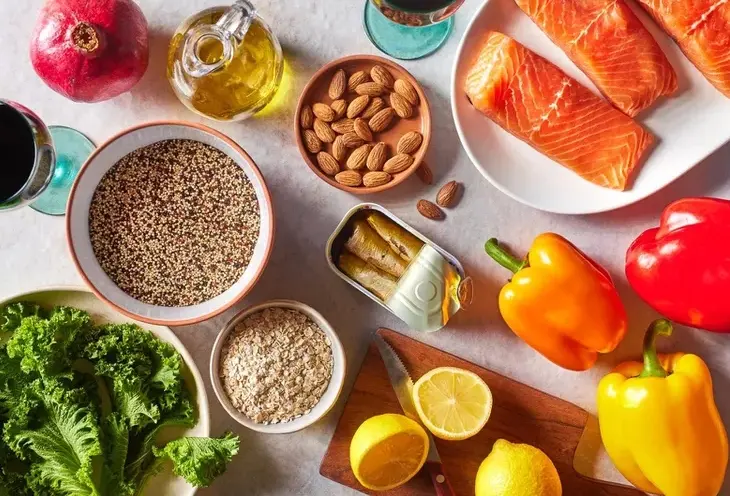The Mediterranean Way to Eating Well
One of the tastiest and healthiest diets on the planet comes from the sun soaked lands of the Mediterranean. It’s actually a life style and not meant to be a diet…the weight lost is a perk!

Based on the cuisines and cultures of Spain, Southern France, Greece, Crete, Southern Italy and part of the Middle East this healthy diet consists of high amounts of monounsaturated fat, mostly in the form of olive oil.
The Mediterranean diet has shown to help in preventing heart disease, despite it’s high fat content. Why? Researcher Ancel Keys and colleagues studied the Greek’s diet in the 1960s and discovered its was the type of fat they consumed that gave them, as opposed to their American counterparts, a much lower rate of heart disease and other conditions.
One third of their diet consisted of fat from olive oil. Fatty animal foods consisting of meat and butter, processed foods such as margarine (which contain trans fats) were rare or absent. Their way of eating frees up more room on their plates for healthier monounsaturated fats. These fats such as olive oil, avocados, nuts and omega-3 fatty acids found in some fish and walnuts actually seemed to protect against heart disease and cancer.
Just adding these fats to an unhealthy diet is not enough. The type of olive oil is important. Extra virgin olive oil is the best because it represents the first gentle press of the olives so it’s less processed than other kinds and has more antioxidant activity.
Some helpful hints for starting this diet/lifestyle:
Browse a few cookbooks such as, The Mediterranean Diet Cookbook by Nancy Harmon Jenkins or Mediterranean Light by Martha Rose Shulman or browse the net. Choose some simple recipes to begin.
Use semolina pasta, wild rice, garlic, canned beans and tomatoes, fresh if possible. You may have some of these ingredients already on your shelves.
Use olive oil as your cooking fat.
Try grains and beans. Americans use refined carbohydrates like white bread and white rice. Start consuming whole unrefined grains which is the basis of most Mediterranean meals. Try different semolina pastas, couscous (a rice like pasta from North Africa). Use barley, bulgur and polenta (cornmeal).
Many types of beans are available precooked and canned. Try legumes like white (cannelloni) kidney, fava, and lima beans, chickpeas and lentils for protein and texture.
Have produce at every meal. Mediterranean peoples enjoy produce year round and you can too if you shop at farmer’s markets or at stores that carry organic produce.
Read:
- Eating for Energy: A Simple Meal-by-Meal Guide to Managing Your Mood with Food – stay full fit
- How To Stop Giving Away Your Health For a Doughnut! – stay full fit
- Seven Ways to Lose 10 Pounds This Month! – stay full fit